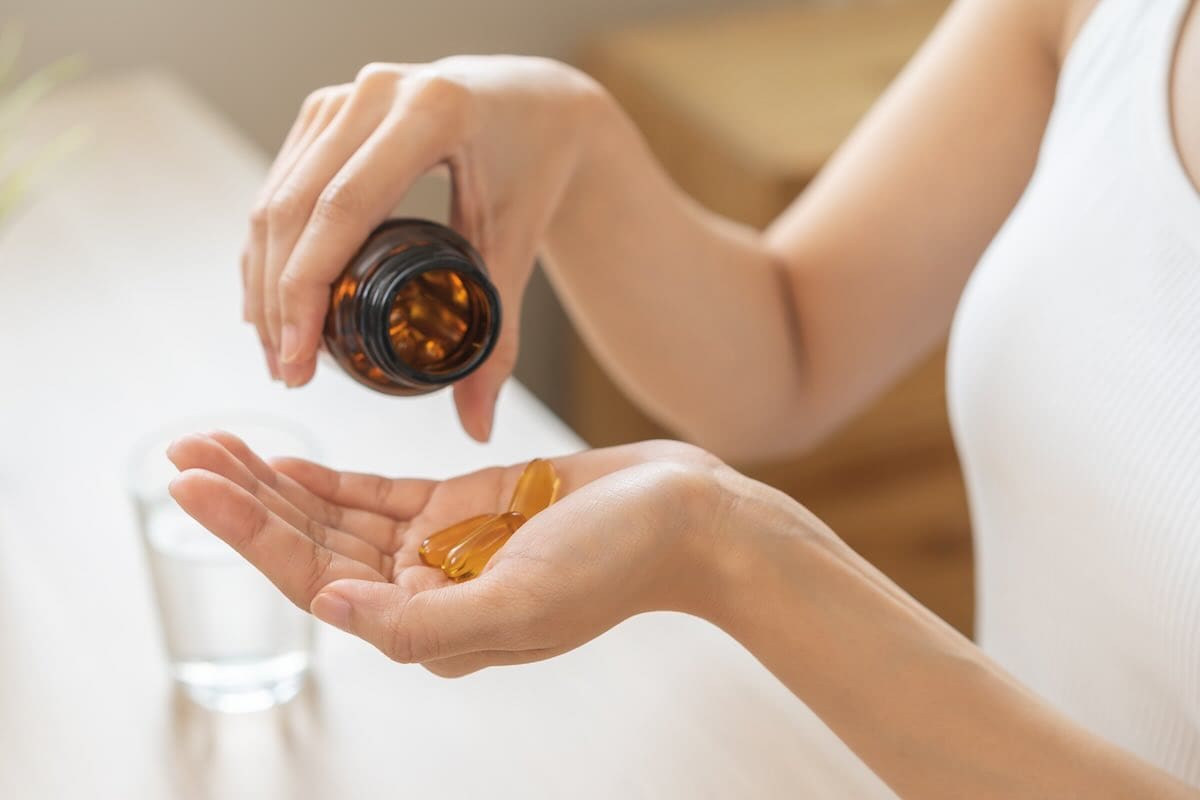Step inside any pharmacy in Australia and you’ll encounter a huge range of Vitamin D tablets and supplements promising to help strengthen and support bone health. But how do you know if you actually need one? The University of Sydney’s Professor Rebecca Mason has dedicated her professional life to researching how our bones grow and evolve with age. She says, when it comes to choosing supplements and vitamins, there are few (if any) hard and fast rules.
“The three clear lifestyle factors that play a part in strengthening bones are:
- vitamin D
- dietary calcium and
- weight bearing exercise.”
But right from the get-go, it’s a tricky topic to navigate; vitamin D isn’t really a vitamin at all! On average, 80 per cent of our vitamin D “intake” comes from exposure to sunlight. “Vitamin D is a chemical made through the skin in a chemical reaction that involves the energy of sunlight, particularly the UV part of sunlight, which you can’t see,” explains Professor Mason. “There’s also not a lot of vitamin D in most food, so if you can’t get out into the sunlight for one reason or another, that’s when a vitamin D supplements become important.” And that’s where supplements are a real game changer – for sun sensitive, incapacitated or housebound people, or if you live a very dark climate (think: northern Europe).
Sunlight provides 80 percent of
our Vitamin D “intake” on average
But vitamin D alone is not the only part of the healthy bone story. “Vitamin D doesn’t do much by itself. It’s got to be paired with adequate calcium intake to have an effect on the bones,” says Professor Mason. That may sound like an open and shut case for reaching straight for a combined Vitamin D and Calcium supplement, but getting your fix isn’t that simple. Here Professor Mason answers our most pressing questions about diet, vitamins and sunlight.
Do vitamin D supplements work?
If you give vitamin D to people who are healthy and who are out in the sun, you don’t get any real benefit.
There’s been a lot of publicity around trials where people have been given Vitamin D supplements and they have had no effect on the subsequent occurrence of fractures.
The problem is that the vast majority of these big studies were done on people who were weren’t vitamin D deficient in the first place.
If you look at studies that have been done in groups that were very deficient, like people living in aged care facilities, vitamin D supplements make a huge difference. The rate of fractures drops quite markedly.
How do I know if I have a Vitamin D deficiency?
If you’re at high risk of having vitamin D deficiency, you can have the vitamin D checked if you ask your GP. Vitamin D tests are expensive, so if your doctor is reluctant, it might be for that reason. But if you really want a vitamin D test, you believe you’re at risk, discuss that with your doctor.
Can I get Vitamin D by changing my diet?
With vitamin D there may not be much of an alternative to sun exposure or taking a supplement. You really can’t get as much vitamin D as you need from most food. There are foods that have been supplemented with vitamin D, some milks, even things like some orange juice have extra vitamin D, but there’s not much in food.
What foods contain vitamin D?
Eating fish helps, there’s a reasonable amount if you eat the skin as well and especially the oily fish like salmon. Mushrooms that have been exposed to UV also have a lot of vitamin B. It’s the plant form, but it still works okay.
How do I know if I need to take a Vitamin D supplement?
As a prudent precaution, it is probably reasonable to take vitamin D supplements if you have tested as having low vitamin D levels (in a blood test) or if you think you could be low in vitamin D and you are not able to get out in the sun or, because sun exposure is medically contraindicated [your Doctor advises against it]. If you can’t get out or if you’re at high risk of skin cancer or you’ve had skin cancer, then a daily supplement of vitamin D might be useful.
But it’s not as clear whether the average 50-year-old wandering around the pharmacy needs a vitamin D supplement. Maybe in winter it might help a little bit, but it it’s this middle segment of the population who are getting some sunlight, where the research is not as clear.
What dosage of Vitamin D should I choose and how often should I take it?
About 25 micrograms (1000 IU – international units) is reasonable for most people. There have been various attempts over the years to give people weekly, monthly, or even yearly vitamin D – you can give enough vitamin D in a single dose to cover a year supply of vitamin D – but when you give really high doses you switch off all the vitamin D functionality, so daily is best.
Related Posts
Should I take a calcium supplement?
There are some question marks hanging over calcium supplements. The data suggests that giving calcium supplements may increase the risk of blood vessel disease. Things like heart attacks or strokes may increase with calcium supplements. That doesn’t seem to be a problem if you keep the supplement below about 600 milligrams and possibly if you eat it with food because that delays the absorption.
Getting calcium through diet is a different story. There is consistent evidence that eating extra calcium as part of your diet may be helpful with blood vessel disease, strokes and heart attacks (myocardial infarcts). You’re far better off getting the calcium from your diet than taking a supplement.
There was a study in Melbourne of residents in an aged care facility where they added milk powder to a lot of the food being served – in doing so, they really increased the amount of calcium the residents were getting in their diet. There was a very dramatic drop in falls – about 12% , and about a 20 percent reduction in fractures, after two years. These people were already receiving a vitamin D supplement and then with getting extra calcium through their diet, there was a very clear benefit.
How do I get the necessary intake of calcium if I’m vegetarian or vegan?
Generally speaking, vegetarian or especially vegan diets have less calcium and often particularly less protein and B12. There is plenty of evidence in the literature that for people on these diets, their bone health, by and large, is not as good. Vegetarians less so because they are at least eating dairy and eggs and there’s plenty of protein if you look for it in plant foods, but you just have to look for it and make sure you are eating the right things.


